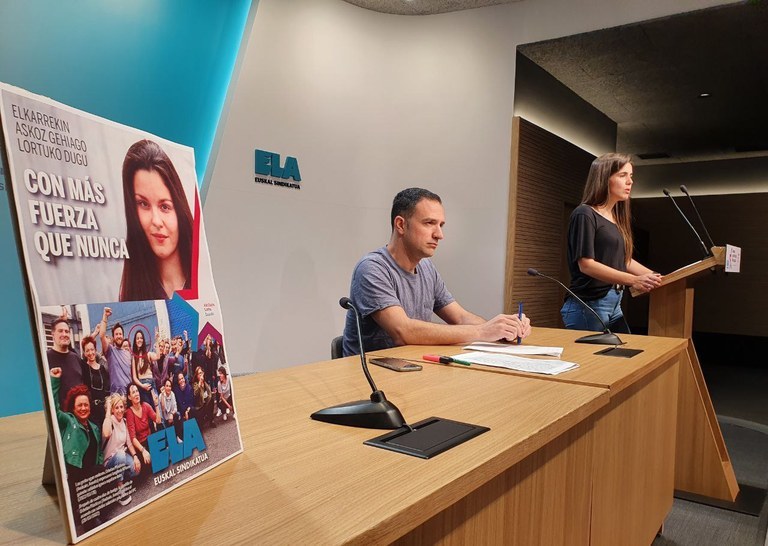Over the past five years 13,000 members of ELA have defended their labour rights using the strike fund

For Lakuntza, the strike fund is an exemplary, fundamental instrument of solidarity, as the workers support each other with their contributions to the fund. The data clearly shows this: in 2021, a total of 2,096 members used the strike fund to defend their rights. Many of them in fights such as Tubacex, IMQ, Guggenheim or Novaltia, amongst others. Likewise, and in spite of the pandemic, 13,000 people have used the fund since 2017.
Additionally, Mantxola emphasised that the workers themselves activate the strike fund if the regulations are met. “It is activated when the workers decide to strike.” Thanks to this, the worker receives 1,243 euros per month during the strike (with the top limit of each recipient’s normal salary).
In the midst of a crisis and with unbridled inflation, the strike fund continues to be a decisive tool, the General Secretary asserts. “To face up to the insecurity of the labour market, the rise in the cost of living and pro-employer policies, the trade union is more necessary than ever before, because it is the way to compensate the imbalance produced between the employers and the working class.”
For this reason, the trade union needs to have an extensive, committed base of members. As thanks to their contribution the financial independence and the political independence of the trade union is preserved and the maintenance of a strong strike fund is guarantee, capable of facing up to the employers. “Strikes are not won because you are right”, Lakuntza adds. “They are won when you have the capacity to endure, because good agreements are reached when the trade unions fight.” Examples of this are the 300 agreements achieved by ELA every year.
The data from the Labour Relations Board (CRL) reflects this capacity: up to February in the ACBC 18,469 days without working due to strikes were accumulated; in the rest of the State (information only from January), only 9,587 days were accumulated. And this is translated into better salary increments: in the ACBC, the agreements in force have an average increase of 4.92 points; and in the rest of the State, this only reaches 2.40. “Because the strike fund guarantees an alternative thanks to the over 100,000 members.”
